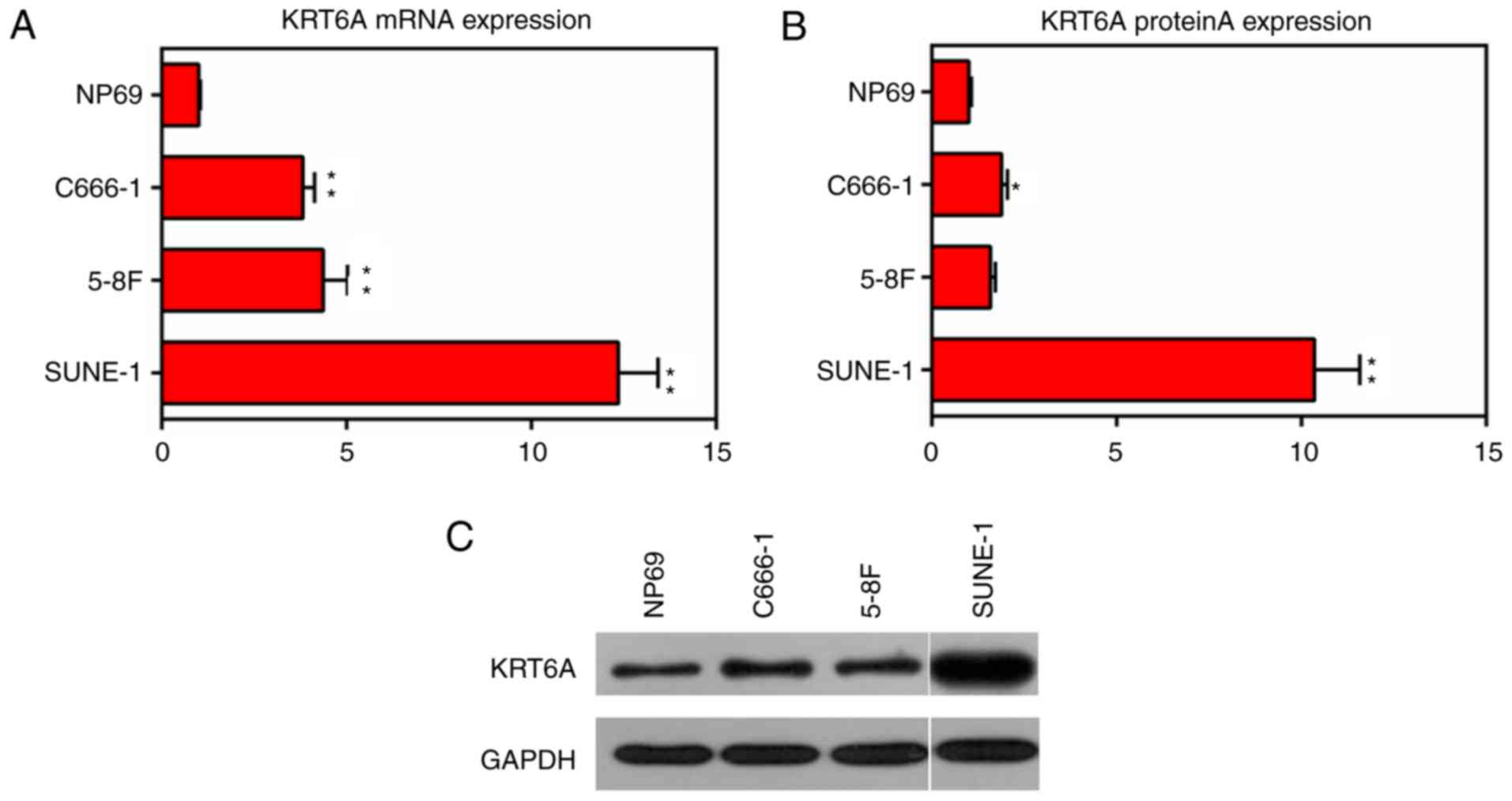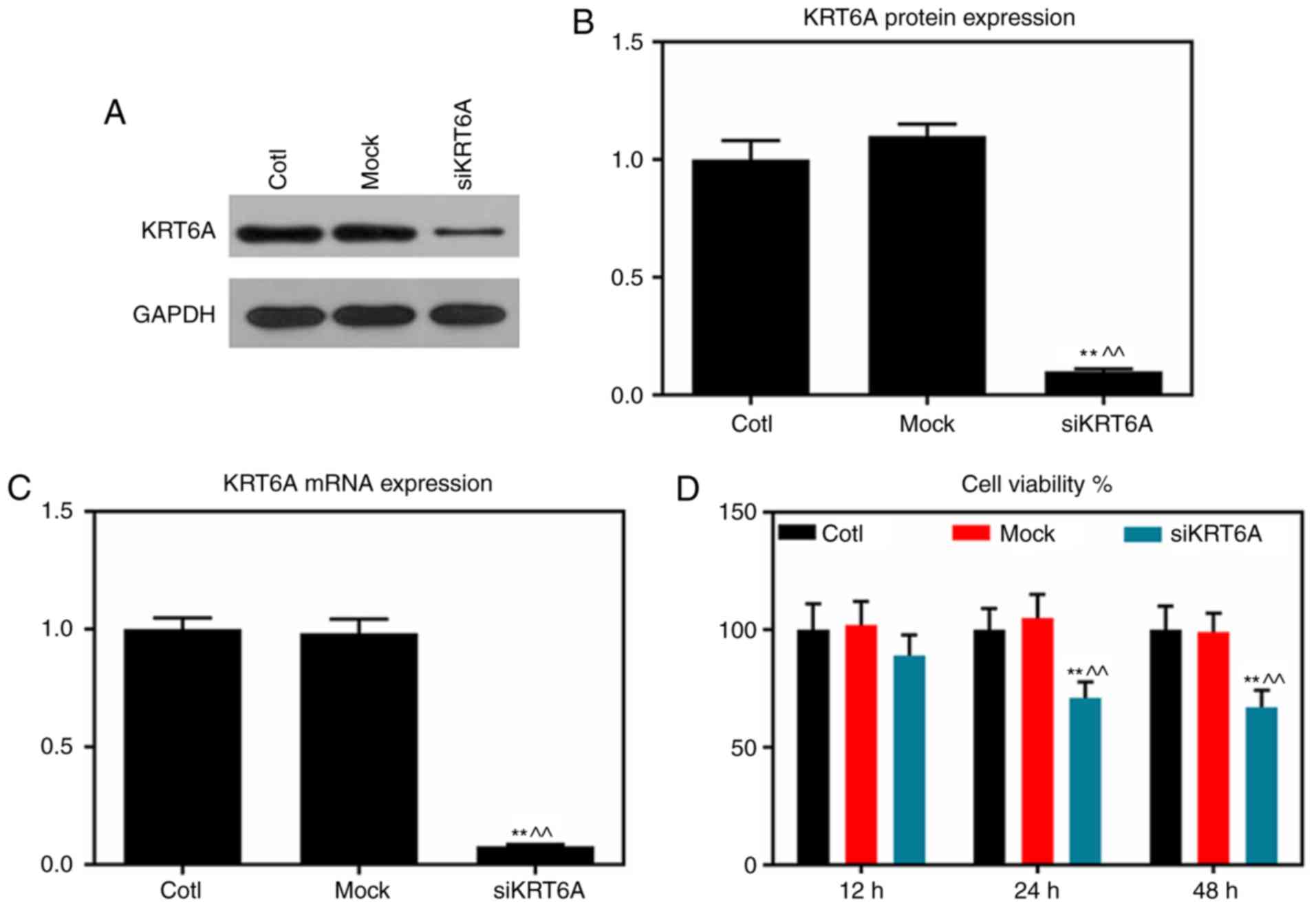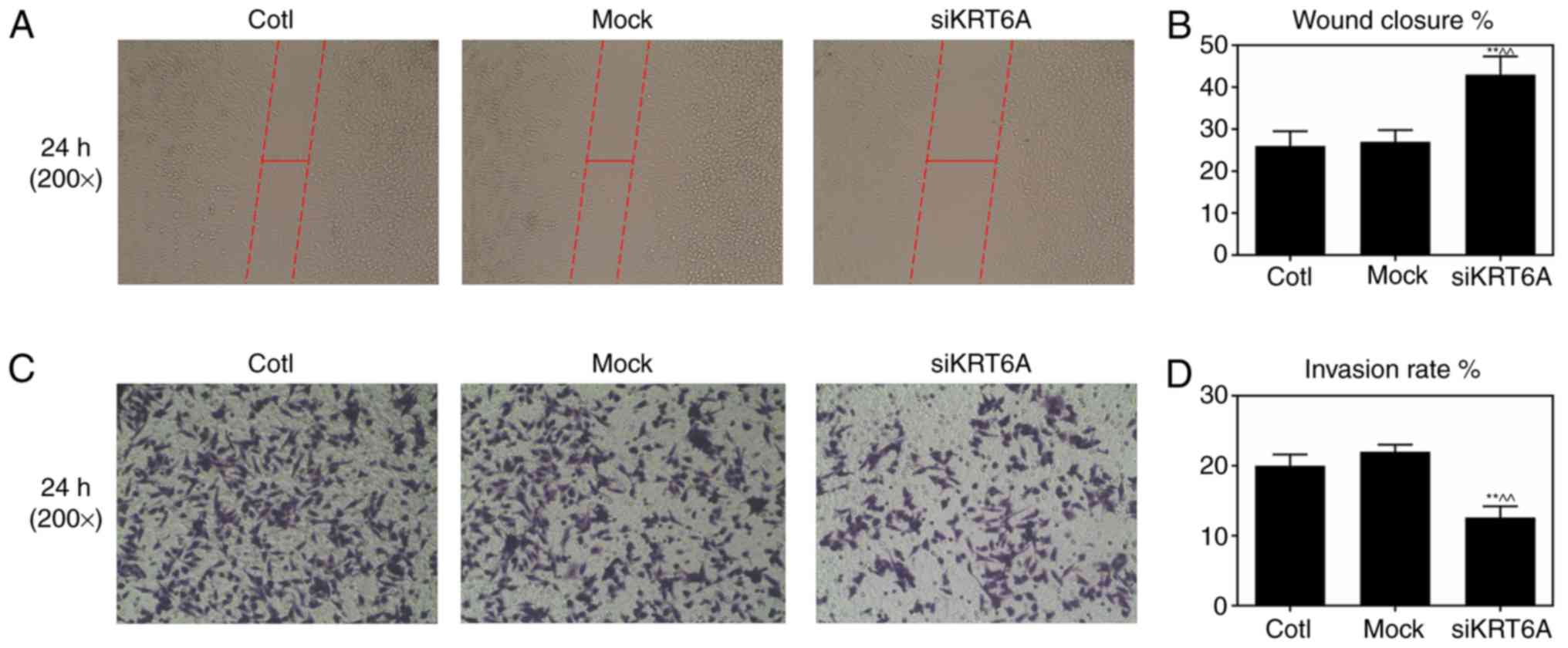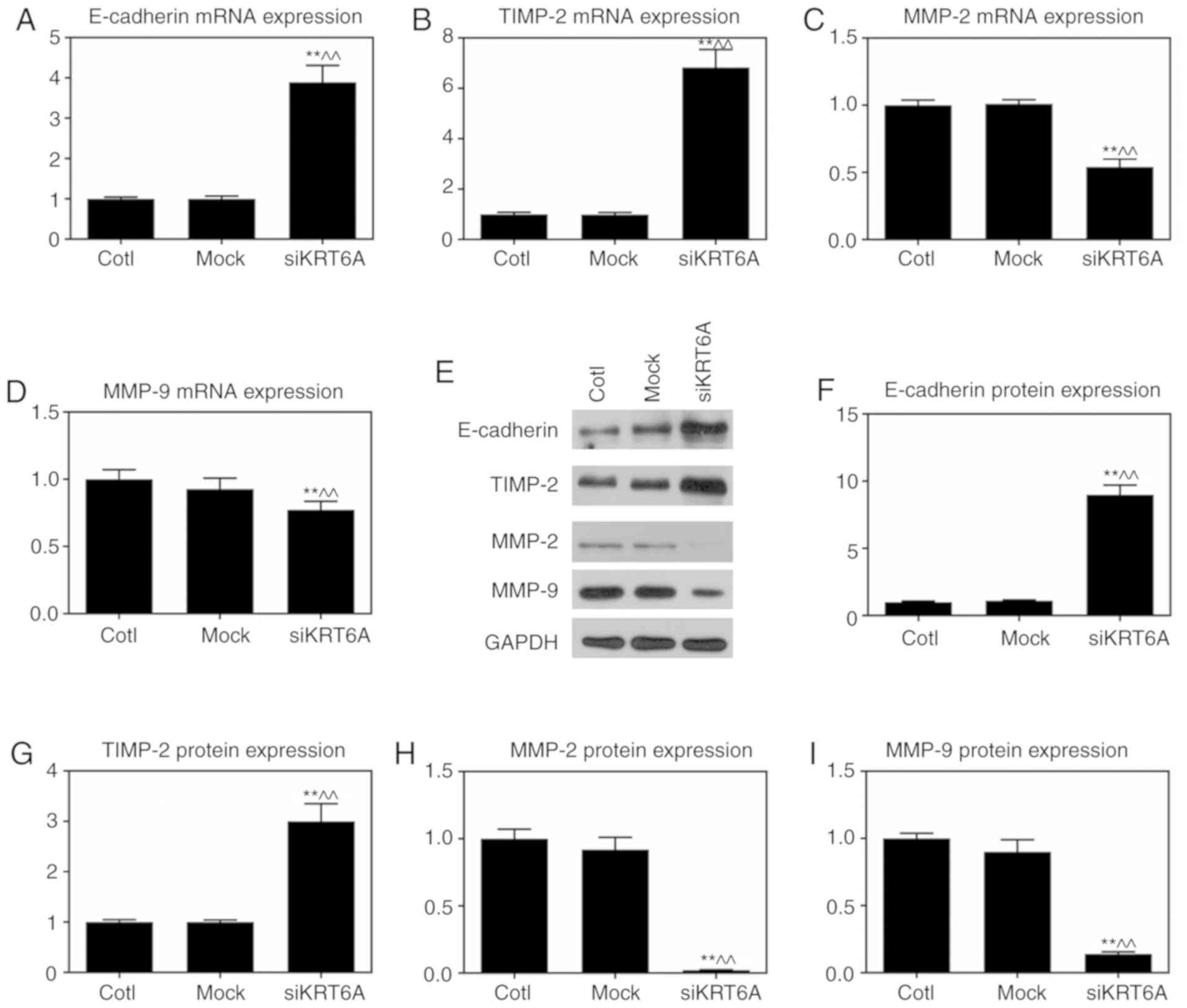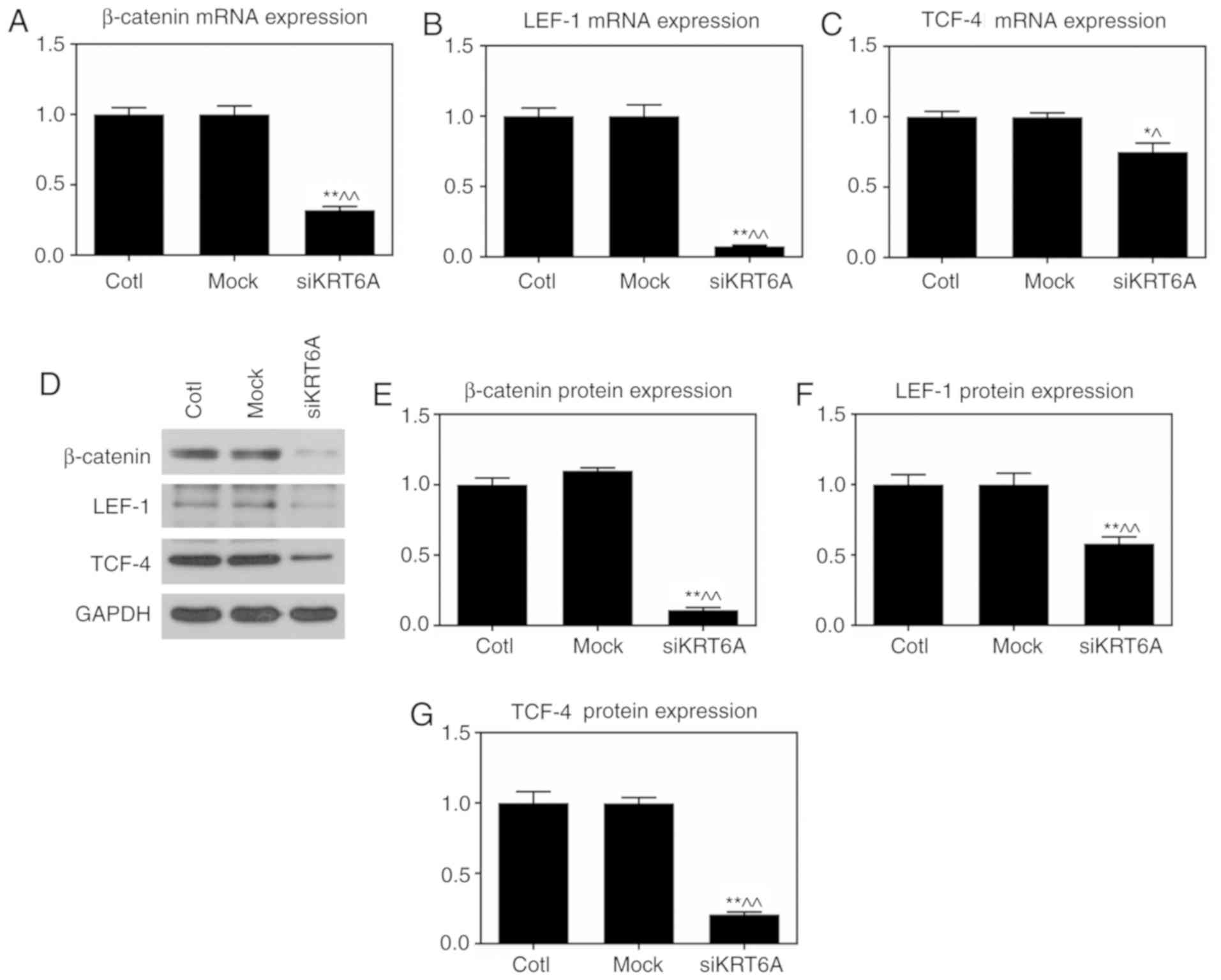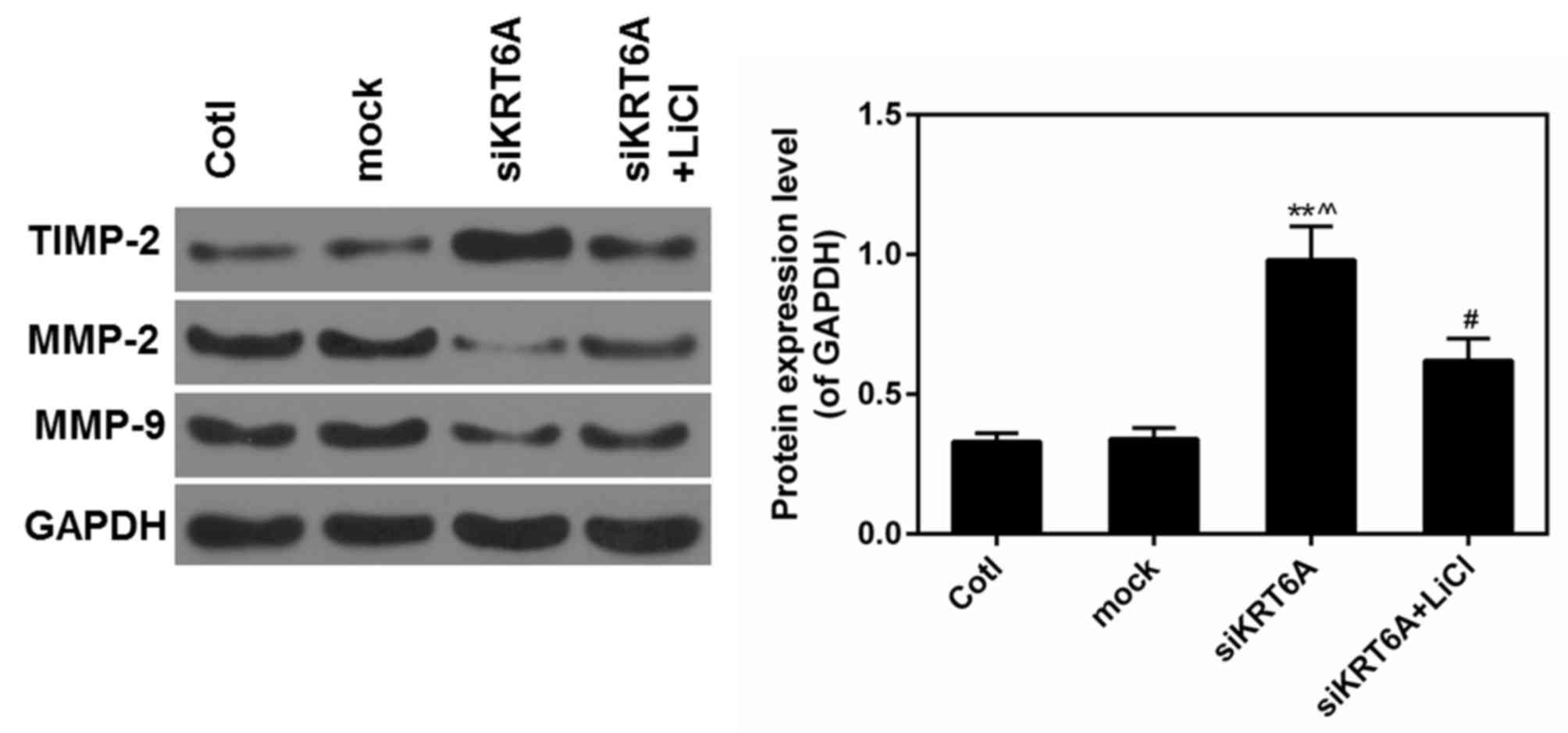|
1
|
Liu TF: Recent developments in diagnosis
and treatment of nasopharyngeal carcinoma. Keio J Med. 40:59–62.
1991. View Article : Google Scholar : PubMed/NCBI
|
|
2
|
Wyatt DE, Brooker DS, Connolly JH and
Coyle PV: Prognostic value of Epstein-Barr virus serology in
patients with nasopharyngeal carcinoma. J Infect. 26:171–175. 1993.
View Article : Google Scholar : PubMed/NCBI
|
|
3
|
Wang Y, Shen C, Lu X and Hu C: The
incidence and prognosis of nasopharyngeal carcinoma patients with
family history. Oncotarget. 8:97323–97330. 2017.PubMed/NCBI
|
|
4
|
Wei KR, Zheng RS, Zhang SW, Liang ZH, Li
ZM and Chen WQ: Nasopharyngeal carcinoma incidence and mortality in
China, 2013. Chin J Cancer. 36:902017. View Article : Google Scholar : PubMed/NCBI
|
|
5
|
Lu TX: Advance in diagnosis and management
of local recurrent nasopharyngeal carcinoma. Ai Zheng. 23:230–234.
2004.(In Chinese). PubMed/NCBI
|
|
6
|
Xia L, Zhang W, Zhu L and Yu G: Abnormally
expressed long non-coding RNAs in nasopharyngeal carcinoma: A
meta-analysis. Clin Lab. 64:585–595. 2018. View Article : Google Scholar : PubMed/NCBI
|
|
7
|
Chan AT, Leung TW, Kwan WH, Mok TS, Yeo W,
Lai M and Johnson PJ: Phase II study of Temodal in the treatment of
patients with advanced nasopharyngeal carcinoma. Cancer Chemother
Pharmacol. 42:247–249. 1998. View Article : Google Scholar : PubMed/NCBI
|
|
8
|
Li Y, Ou X, Shen C, Xu T, Li W and Hu C:
Patterns of local failures and suggestions for reduction of
clinical target volume for nasopharyngeal carcinoma patients
without cervical lymph node metastasis. Onco Targets Ther.
11:2545–2555. 2018. View Article : Google Scholar : PubMed/NCBI
|
|
9
|
Qi XK, Han HQ, Zhang HJ, Xu M, Li L, Chen
L, Xiang T, Feng QS, Kang T, Qian CN, et al: OVOL2 links stemness
and metastasis via fine-tuning epithelial-mesenchymal transition in
nasopharyngeal carcinoma. Theranostics. 8:2202–2216. 2018.
View Article : Google Scholar : PubMed/NCBI
|
|
10
|
Ogasawara N, Kudo T, Sato M, Kawasaki Y,
Yonezawa S, Takahashi S, Miyagi Y, Natori Y and Sugiyama A:
Reduction of membrane protein CRIM1 decreases E-cadherin and
increases claudin-1 and MMPs, enhancing the migration and invasion
of renal carcinoma cells. Biol Pharm Bull. 41:604–611. 2018.
View Article : Google Scholar : PubMed/NCBI
|
|
11
|
Tuo Z, Zhang J and Xue W: LncRNA TP73-AS1
predicts the prognosis of bladder cancer patients and functions as
a suppressor for bladder cancer by EMT pathway. Biochem Biophys Res
Commun. 499:875–881. 2018. View Article : Google Scholar : PubMed/NCBI
|
|
12
|
Shi B, Wang Y and Yin F:
MALAT1/miR-124/Capn4 axis regulates proliferation, invasion and EMT
in nasopharyngeal carcinoma cells. Cancer Biol Ther. 18:792–800.
2017. View Article : Google Scholar : PubMed/NCBI
|
|
13
|
Li S, Zhang X, Zhang R, Liang Z, Liao W,
Du Z, Gao C, Liu F, Fan Y and Hong H: Hippo pathway contributes to
cisplatin resistant-induced EMT in nasopharyngeal carcinoma cells.
Cell Cycle. 16:1601–1610. 2017. View Article : Google Scholar : PubMed/NCBI
|
|
14
|
Zuo LL, Zhang J, Liu LZ, Zhou Q, Du SJ,
Xin SY, Ning ZP, Yang J, Yu HB, Yue WX, et al: Cadherin 6 is
activated by Epstein-Barr virus LMP1 to mediate EMT and metastasis
as an interplay node of multiple pathways in nasopharyngeal
carcinoma. Oncogenesis. 6:4022017. View Article : Google Scholar : PubMed/NCBI
|
|
15
|
Wu SL, Li YJ, Liao K, Shi L, Zhang N, Liu
S, Hu YY, Li SL and Wang Y: 2-Methoxyestradiol inhibits the
proliferation and migration and reduces the radioresistance of
nasopharyngeal carcinoma CNE-2 stem cells via NF-κB/HIF-1 signaling
pathway inactivation and EMT reversal. Oncol Rep. 37:793–802. 2017.
View Article : Google Scholar : PubMed/NCBI
|
|
16
|
Hu Y, Qi MF, Xu QL, Kong XY, Cai R, Chen
QQ, Tang HY and Jiang W: Candidate tumor suppressor ZNF154
suppresses invasion and metastasis in NPC by inhibiting the EMT via
Wnt/β-catenin signalling. Oncotarget. 8:85749–85758.
2017.PubMed/NCBI
|
|
17
|
Wang G, Zhang L, Zhou Y, Sun Q, Xu H, Cai
F, Xiang P, Chen Z and Jiang H: KAI1/CD82 genetically engineered
endothelial progenitor cells inhibit metastasis of human
nasopharyngeal carcinoma in a mouse model. Med Sci Monit.
24:3146–3152. 2018. View Article : Google Scholar : PubMed/NCBI
|
|
18
|
Aouf S, Laribi A, Gabbouj S, Hassen E,
Bouaouinaa N, Zakhama A and Harizi H: Contribution of Nitric oxide
synthase 3 genetic variants to nasopharyngeal carcinoma risk and
progression in a Tunisian population. Eur Arch Otorhinolaryngol.
13–Feb;2019.(Epub ahead of print). View Article : Google Scholar : PubMed/NCBI
|
|
19
|
Chua HH, Kameyama T, Mayeda A and Yeh TH:
Cancer-specifically re-spliced TSG101 mRNA promotes invasion and
metastasis of nasopharyngeal carcinoma. Int J Mol Sci. 20(pii):
E7732019. View Article : Google Scholar : PubMed/NCBI
|
|
20
|
Petersson F: EBV-associated
non-keratinizing nasopharyngeal carcinoma with prominent spindled
cell and whorling patterns: A previously unreported histological
variant in a patient presenting with dermatomyositis. Head Neck
Pathol. 13–Feb;2019.(Epub ahead of print). View Article : Google Scholar :
|
|
21
|
Xiao H, Guo Y, Yi J, Xia H, Xu H, Yuan L,
Hu P, Yang Z, He Z, Lu H and Deng H: Identification of a novel
keratin 9 missense mutation in a chinese family with epidermolytic
palmoplantar keratoderma. Cell Physiol Biochem. 46:1919–1929. 2018.
View Article : Google Scholar : PubMed/NCBI
|
|
22
|
Jacob JT, Coulombe PA, Kwan R and Omary
MB: Types I and II keratin intermediate filaments. Cold Spring Harb
Perspect Biol. 10(pii): a0182752018. View Article : Google Scholar : PubMed/NCBI
|
|
23
|
Komori T, Ono M, Hara ES, Ueda J, Nguyen
HTT, Nguyen HT, Yonezawa T, Maeba T, Kimura-Ono A, Takarada T, et
al: Type IV collagen α6 chain is a regulator of keratin 10 in
keratinization of oral mucosal epithelium. Sci Rep. 8:26122018.
View Article : Google Scholar : PubMed/NCBI
|
|
24
|
Deo PN and Deshmukh R: Pathophysiology of
keratinization. J Oral Maxillofac Pathol. 22:86–91. 2018.PubMed/NCBI
|
|
25
|
Gu LH and Coulombe PA: Keratin function in
skin epithelia: A broadening palette with surprising shades. Curr
Opin Cell Biol. 19:13–23. 2007. View Article : Google Scholar : PubMed/NCBI
|
|
26
|
Chang HH, Dreyfuss JM and Ramoni MF: A
transcriptional network signature characterizes lung cancer
subtypes. Cancer. 117:353–360. 2011. View Article : Google Scholar : PubMed/NCBI
|
|
27
|
Forrest CE, Casey G, Mordaunt DA, Thompson
EM and Gordon L: Pachyonychia congenita: A spectrum of KRT6a
mutations in australian patients. Pediatr Dermatol. 33:337–342.
2016. View Article : Google Scholar : PubMed/NCBI
|
|
28
|
Cammarata-Scalisi F, Natsuga K, Toyonaga
E, Nishie W, Shimizu H, Avendaño A, Araque D, Da Silva G,
Bellacchio E and Callea M: Early severe pachyonychia congenita
subtype PC-K6a with a novel mutation in the KRT6A gene. J Eur Acad
Dermatol Venereol. 31:e94–e96. 2017. View Article : Google Scholar : PubMed/NCBI
|
|
29
|
Chai AW, Cheung AK, Dai W, Ko JM, Ip JC,
Chan KW, Kwong DL, Ng WT, Lee AW, Ngan RK, et al:
Metastasis-suppressing NID2, an epigenetically-silenced gene, in
the pathogenesis of nasopharyngeal carcinoma and esophageal
squamous cell carcinoma. Oncotarget. 7:78859–78871. 2016.
View Article : Google Scholar : PubMed/NCBI
|
|
30
|
Zhang P, Zhang L, Liu H, Zhao L, Li Y,
Shen JX, Liu Q, Liu MZ and Xi M: Clinicopathologic characteristics
and prognosis of tongue squamous cell carcinoma in patients with
and without a history of radiation for nasopharyngeal carcinoma: A
matched case-control study. Cancer Res Treat. 49:695–705. 2017.
View Article : Google Scholar : PubMed/NCBI
|
|
31
|
Clement-Lacroix P, Ai M, Morvan F,
Roman-Roman S, Vayssière B, Belleville C, Estrera K, Warman ML,
Baron R and Rawadi G: Lrp5-independent activation of Wnt signaling
by lithium chloride increases bone formation and bone mass in mice.
Proc Natl Acad Sci USA. 102:17406–17411. 2005. View Article : Google Scholar : PubMed/NCBI
|
|
32
|
Livak KJ and Schmittgen TD: Analysis of
relative gene expression data using real-time quantitative PCR and
the 2(-Delta Delta C(T)) method. Methods. 25:402–408. 2001.
View Article : Google Scholar : PubMed/NCBI
|
|
33
|
Wang P, Shen N, Liu D, Ning X, Wu D and
Huang X: TRIM24 siRNA induced cell apoptosis and reduced cell
viability in human nasopharyngeal carcinoma cells. Mol Med Rep.
18:369–376. 2018.PubMed/NCBI
|
|
34
|
Setyaningsih WAW, Arfian N, Suryadi E,
Romi MM, Tranggono U and Sari DCR: Hyperuricemia induces Wnt5a/Ror2
gene expression, epithelial-mesenchymal transition, and kidney
tubular injury in mice. Iran J Med Sci. 43:164–173. 2018.PubMed/NCBI
|
|
35
|
Yang F, Wei K, Qin Z, Liu W, Shao C, Wang
C, Ma L, Xie M, Shu Y and Shen H: MiR-598 suppresses invasion and
migration by negative regulation of derlin-1 and
epithelial-mesenchymal transition in non-small cell lung cancer.
Cell Physiol Biochem. 47:245–256. 2018. View Article : Google Scholar : PubMed/NCBI
|
|
36
|
Zheng P, Li H, Xu P, Wang X, Shi Z, Han Q
and Li Z: High lncRNA HULC expression is associated with poor
prognosis and promotes tumor progression by regulating
epithelial-mesenchymal transition in prostate cancer. Arch Med Sci.
14:679–686. 2018. View Article : Google Scholar : PubMed/NCBI
|
|
37
|
Zhang Y, Zhao L, Wang L, Yang X, Zhou A
and Wang J: Placental growth factor promotes epithelial-mesenchymal
transition-like changes in ARPE-19 cells under hypoxia. Mol Vis.
24:340–352. 2018.PubMed/NCBI
|
|
38
|
Chiu YJ, Hour MJ, Jin YA, Lu CC, Tsai FJ,
Chen TL, Ma H, Juan YN and Yang JS: Disruption of IGF-1R signaling
by a novel quinazoline derivative, HMJ-30, inhibits invasiveness
and reverses epithelial-mesenchymal transition in osteosarcoma U-2
OS cells. Int J Oncol. 16–Mar;2018.(Epub ahead of print).
View Article : Google Scholar
|
|
39
|
Ciaramella V, Della Corte CM, Di Mauro C,
Tomassi S, Di Maro S, Troiani T, Martinelli E, Bianco R, Cosconati
S, Pierantoni R, et al: Antitumor efficacy of Kisspeptin in human
malignant mesothelioma cells. Oncotarget. 9:19273–19282. 2018.
View Article : Google Scholar : PubMed/NCBI
|
|
40
|
Fu X, Zhu Y, Zheng B, Zou Y, Wang C, Wu P,
Wang J, Chen H, Du P, Liang B and Fang L: KIFC1, a novel potential
prognostic factor and therapeutic target in hepatocellular
carcinoma. Int J Oncol. 52:1912–1922. 2018.PubMed/NCBI
|
|
41
|
Jiang Y, Jiao Y, Liu Y, Zhang M, Wang Z,
Li Y, Li T, Zhao X and Wang D: Sinomenine hydrochloride inhibits
the metastasis of human glioblastoma cells by suppressing the
expression of matrix metalloproteinase-2/-9 and reversing the
endogenous and exogenous epithelial-mesenchymal transition. Int J
Mol Sci. 19(pii): E8442018. View Article : Google Scholar : PubMed/NCBI
|
|
42
|
Kur-Piotrowska A, Bukowska J, Kopcewicz
MM, Dietrich M, Nynca J, Slowinska M and Gawronska-Kozak B: Foxn1
expression in keratinocytes is stimulated by hypoxia: Further
evidence of its role in skin wound healing. Sci Rep. 8:54252018.
View Article : Google Scholar : PubMed/NCBI
|
|
43
|
Bush BM, Brock AT, Deng JA, Nelson RA and
Sumter TF: The Wnt/β-catenin/T-cell factor 4 pathway up-regulates
high-mobility group A1 expression in colon cancer. Cell Biochem
Funct. 31:228–236. 2013. View
Article : Google Scholar : PubMed/NCBI
|
|
44
|
Narasipura SD, Henderson LJ, Fu SW, Chen
L, Kashanchi F and Al-Harthi L: Role of β-catenin and TCF/LEF
family members in transcriptional activity of HIV in astrocytes. J
Virol. 86:1911–1921. 2012. View Article : Google Scholar : PubMed/NCBI
|
|
45
|
Yu XW, Xu Q, Xu Y, Gong YH and Yuan Y:
Expression of the E-cadherin/β-catenin/tcf-4 pathway in gastric
diseases with relation to Helicobacter pylori infection: Clinical
and pathological implications. Asian Pac J Cancer Prev. 15:215–220.
2014. View Article : Google Scholar : PubMed/NCBI
|
|
46
|
Zhang J, Huang K, Shi Z, Zou J, Wang Y,
Jia Z, Zhang A, Han L, Yue X, Liu N, et al: High β-catenin/Tcf-4
activity confers glioma progression via direct regulation of AKT2
gene expression. Neuro Oncol. 13:600–609. 2011. View Article : Google Scholar : PubMed/NCBI
|
|
47
|
Qian L, Zhang W, Zhang P, Lei B, Wang X,
Wang M, Bai J and He A: The anti-apoptosis effect of MLAA-34 in
leukemia and the β-catenin/T cell factor 4 protein pathway. Am J
Transl Res. 7:2270–2278. 2015.PubMed/NCBI
|
|
48
|
Sun J, Jia Z, Li B, Zhang A, Wang G, Pu P,
Chen Z, Wang Z and Yang W: MiR-19 regulates the proliferation and
invasion of glioma by RUNX3 via β-catenin/Tcf-4 signaling.
Oncotarget. 8:110785–110796. 2017. View Article : Google Scholar : PubMed/NCBI
|
|
49
|
Wang K, Wang X, Zou J, Zhang A, Wan Y, Pu
P, Song Z, Qian C, Chen Y, Yang S and Wang Y: miR-92b controls
glioma proliferation and invasion through regulating
Wnt/beta-catenin signaling via Nemo-like kinase. Neuro Oncol.
15:578–588. 2013. View Article : Google Scholar : PubMed/NCBI
|
|
50
|
Xie J, Xiang DB, Wang H, Zhao C, Chen J,
Xiong F, Li TY and Wang XL: Inhibition of Tcf-4 induces apoptosis
and enhances chemosensitivity of colon cancer cells. PLoS One.
7:e456172012. View Article : Google Scholar : PubMed/NCBI
|















